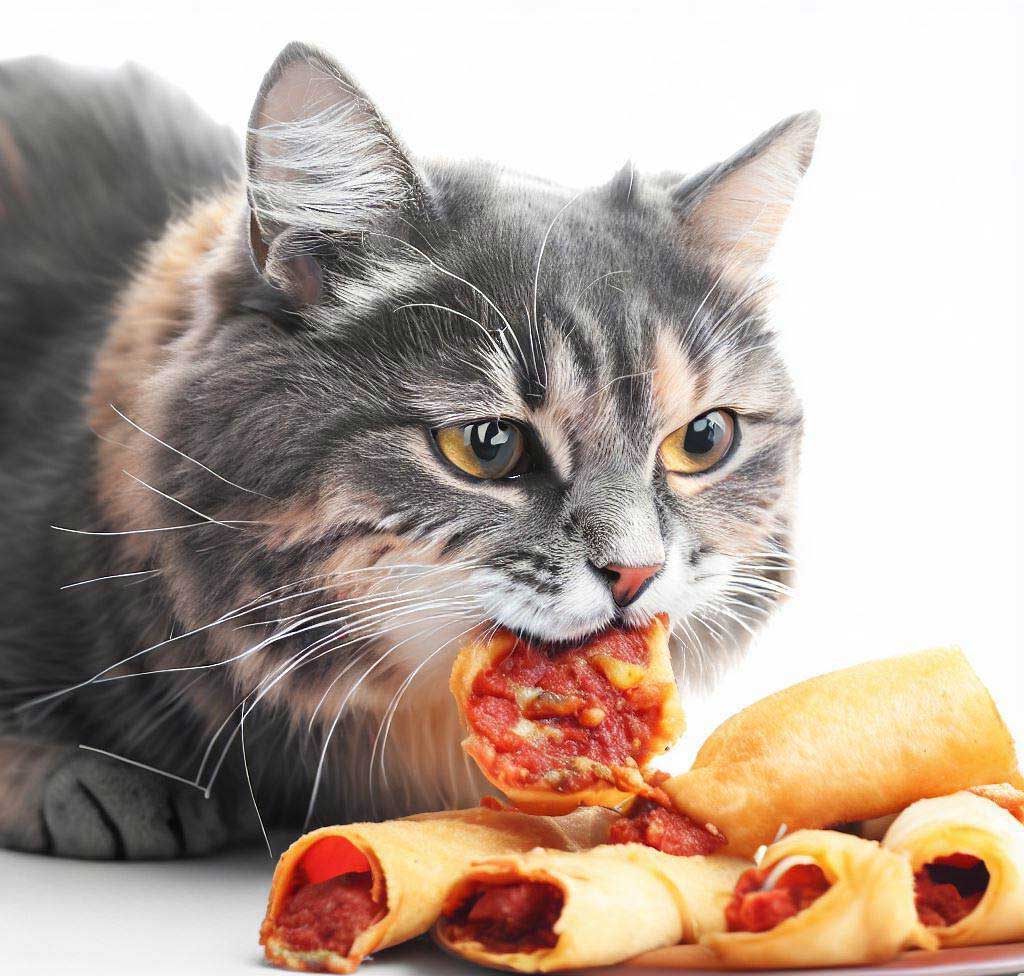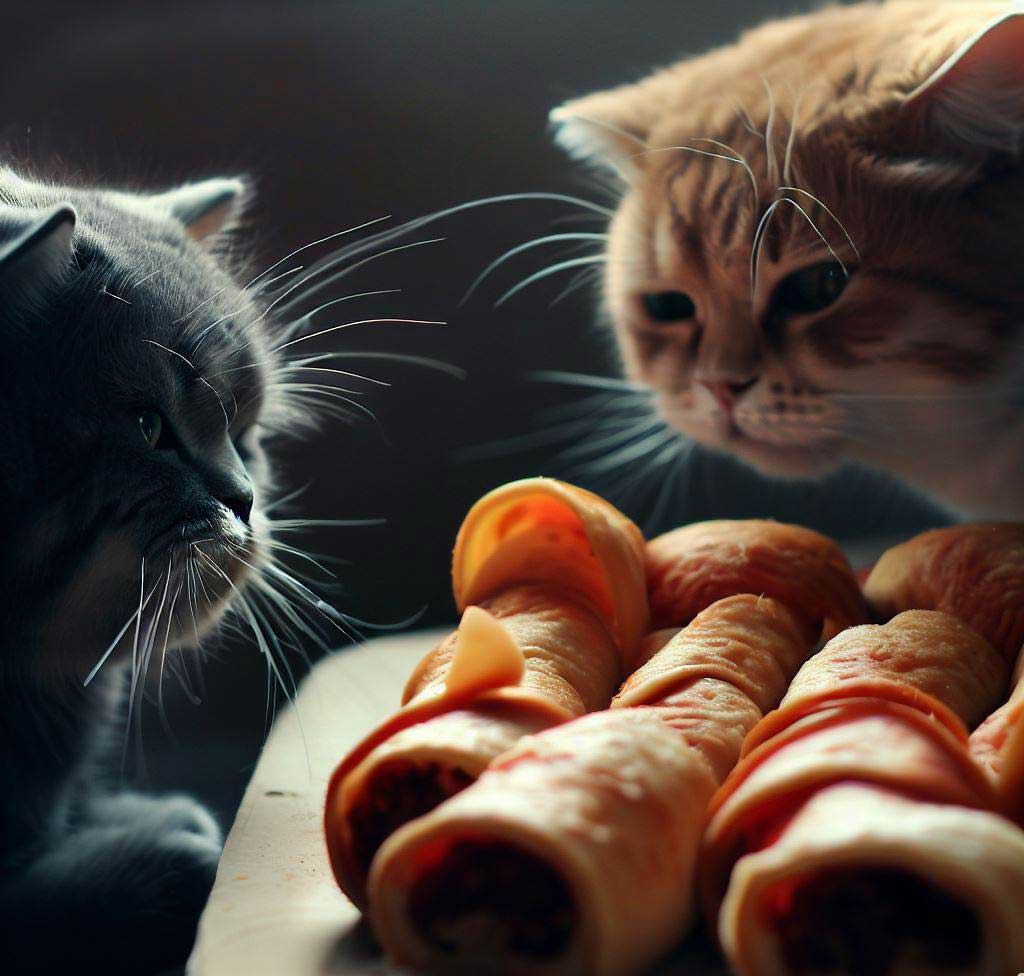Pizza rolls are a delicious treat loved by many, but have you ever wondered if it’s safe to share them with your furry feline friend? While pizza rolls pose no known health risks to cats, it’s essential to understand the potential allergenic ingredients they contain. In this comprehensive guide, we’ll explore whether cats can eat pizza rolls and provide you with the information you need to make an informed decision about treating your cat. So, let’s dive in and find out if your cat can enjoy a pizza roll or two!
What Are Pizza Rolls?
Pizza rolls are bite-sized snacks made from rolled-up pieces of pizza dough, typically fried to perfection. While they are primarily considered a human food, some pet owners have wondered if their cats can indulge in this tasty treat as well. Pizza rolls usually consist of ingredients like flour, water, salt, and yeast. The dough is flattened and topped with tomato sauce, cheese, and various toppings before being rolled up and fried. Some brands even include ingredients like pepperoni or sausage.
Why Shouldn’t Cats Eat Pizza Rolls?
Although you might be tempted to share your pizza rolls with your cat, it’s vital to be mindful of the potential risks involved. Cats can easily choke on small pieces of dough, and excessive consumption of sauce can be harmful. The high fat and calorie content of pizza rolls can also lead to weight gain and other health issues in cats. Therefore, it’s best to exercise caution and keep these tempting snacks out of your cat’s reach.
Is It Safe to Feed My Cat Pizza Rolls?
Cats are obligate carnivores, meaning their bodies are designed to digest and utilize animal-based proteins. While cats can technically eat pizza rolls, they are not a nutritious or ideal food choice for them. Pizza rolls are high in calories and fat and lack the essential nutrients that cats need to thrive. If you choose to treat your cat to an occasional pizza roll, it’s crucial to do so in moderation and ensure they have access to plenty of fresh water.
How Often Should You Feed Your Cat Pizza Rolls?
If you want to give your cat an occasional pizza roll, it’s important to do so sparingly. While there isn’t a fixed number of pizza rolls that cats can safely consume, it’s best to stick to one or two a week at most. Pizza rolls’ high fat and calorie content can lead to weight gain and other health problems in cats. Most cats receive sufficient calories from their regular diet, so it’s unnecessary to add extra calories through pizza rolls. Remember, moderation is key when it comes to treating your feline friend.
Frequently Asked Questions
Here are some commonly asked questions about cats and pizza rolls:
Q: Are pizza rolls toxic to cats?
A: Pizza rolls are generally not toxic to cats, but they can cause gastrointestinal upset due to their ingredients.
Q: Can cats eat the dough in pizza rolls?
A: Cats should avoid consuming pizza dough as it can cause digestive issues.
Q: Can cats eat the toppings on pizza rolls?
A: Cats should avoid consuming toppings like pepperoni or sausage due to their high fat content.
Q: Can cats eat cheese from pizza rolls?
A: Cats can be lactose intolerant, so it’s best to avoid giving them cheese from pizza rolls to prevent diarrhea.
Q: What can cats safely eat as a treat instead of pizza rolls?
A: There are plenty of cat-friendly treats available on the market. Opt for treats specifically formulated for cats to ensure their nutritional needs are met.
Conclusion
While sharing your pizza rolls with your beloved cat might seem like a fun idea, it’s important to prioritize their health and well-being. Pizza rolls lack the essential nutrients that cats need and can potentially cause digestive issues and weight gain. Instead, consider treating your feline friend to cat-friendly treats specifically formulated to meet their dietary requirements. Remember, it’s always best to consult with your veterinarian for personalized advice on your cat’s diet and health.
For more informative and engaging pet-related content, visit Pawsoha, your go-to source for expert insights and guidance in the pet industry.

